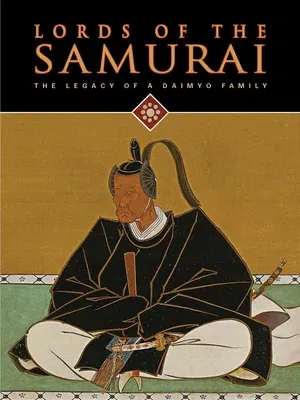Yoko Woodson
(Author)Lords of the Samurai: The Legacy of a Daimyo FamilyPaperback, 31 August 2017

Temporarily out of stock
Free Delivery
Cash on Delivery
15 Days
Free Returns
Secure Checkout

Print Length
240 pages
Language
English
Publisher
Asian Art Museum of San Francisco
Date Published
31 Aug 2017
ISBN-10
0939117800
ISBN-13
9780939117802
Description
Product Details
Book Format:
Paperback
Country of Origin:
HK
Date Published:
31 August 2017
Dimensions:
30.48 x
23.88 x
3.05 cm
Genre:
Asian - Japanese
ISBN-10:
0939117800
ISBN-13:
9780939117802
Language:
English
Pages:
240
Publisher:
Weight:
1837.05 gm